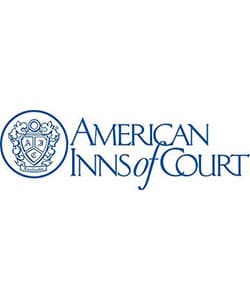Bicycle accidents involving minors can be a deeply distressing experience for families, especially when injuries are severe and legal complexities arise. Understanding the legal process for handling such accidents is crucial to ensuring the rights and interests of the child are protected. Minors, due to their age, often face unique legal considerations, which can make the process of seeking compensation and holding responsible parties accountable more challenging. Parents or guardians must take immediate action after the accident to navigate the legal process properly and to safeguard their child’s well-being.
When a minor is involved in a bicycle accident, the first priority is ensuring that the child receives prompt and appropriate medical care. Once the child’s physical condition is stabilized, the legal aspects must be addressed. In many cases, parents may not be aware of the steps they should take to preserve the rights of their child and may be unsure about the legal implications of pursuing a claim. This is why having a clear understanding of the process is essential for protecting the minor’s interests and securing the compensation they deserve for any injuries and losses sustained during the accident.
Understanding Liability in Bicycle Accidents Involving Minors
In the context of bicycle accidents involving minors, determining liability is a crucial element. Liability refers to the legal responsibility of an individual or entity for causing harm or injury. Bicycle accidents often occur due to factors such as reckless driving, failure to obey traffic laws, or hazardous road conditions. In cases where a motor vehicle driver is involved, they may be held liable if their negligence contributed to the accident. However, liability may also extend to other parties, such as the entity responsible for maintaining safe road conditions or manufacturers if faulty bicycle components were a factor.
Since minors cannot be held to the same legal standard of care as adults, liability laws often take into account the age and experience of the child involved. Courts recognize that younger children may not have the same ability to foresee danger or act with the same caution as an adult would in similar circumstances. This means that while a child may have contributed to the accident, their actions will be judged differently from those of an adult. In Idaho, where Hepworth Holzer, LLP is based, these considerations play a significant role in determining liability and awarding compensation for injuries sustained by a minor in a bicycle accident.
Filing a Claim for a Minor Involved in a Bicycle Accident
One of the key aspects of navigating the legal process for minors involved in bicycle accidents is understanding how to file a claim. When a minor is injured in an accident, they do not have the legal authority to file a lawsuit or claim for compensation on their own. Instead, a parent or guardian must act on their behalf. In most cases, the claim is filed against the party who is believed to be at fault for the accident, such as a negligent driver or a local municipality responsible for road safety.
Filing a claim involves gathering evidence, documenting the injuries and losses sustained by the minor, and determining the financial damages that should be sought. Financial damages can include medical expenses, pain and suffering, loss of enjoyment of life, and any future costs related to long-term treatment or rehabilitation. In cases where the bicycle accident results in permanent disability or significant impairment, the compensation awarded must also account for the ongoing impact on the child’s quality of life.
Parents or guardians should keep detailed records of all medical treatments, prescriptions, therapy sessions, and any other costs associated with the child’s recovery. These records are essential for building a strong case and ensuring that the full extent of the damages is accurately reflected in the claim. Additionally, witness statements, police reports, and any photographic evidence from the scene of the accident can be crucial in proving the fault of the other party.
The Role of Insurance Companies in Bicycle Accident Claims
When pursuing a claim for a minor involved in a bicycle accident, the role of insurance companies becomes an important factor. In many cases, the at-fault party’s insurance company will be responsible for covering the costs associated with the accident. However, insurance companies often seek to minimize the amount of compensation they pay out, which can lead to disputes and delays in the claims process. It is common for insurance adjusters to attempt to settle the case for less than what the family may be entitled to, particularly when dealing with claims involving minors.
Navigating negotiations with an insurance company can be a complicated and frustrating experience, especially for families who are already dealing with the emotional and physical aftermath of a bicycle accident. Insurance adjusters may argue that the minor was partially at fault or that the injuries are not as severe as claimed. To ensure that the child receives fair compensation, it is often necessary to work with legal professionals who have experience dealing with insurance companies and who understand how to counter their tactics effectively.
In some cases, the insurance company may refuse to offer a fair settlement, making it necessary to take the case to court. While litigation can be a lengthy and complex process, it may be the best option for securing the compensation the minor deserves, especially if the insurance company is unwilling to negotiate in good faith.
The Importance of Medical Evidence in Supporting a Claim
Medical evidence plays a central role in supporting a legal claim for a minor involved in a bicycle accident. The extent and severity of the injuries must be clearly documented in order to establish the need for compensation. This includes obtaining detailed medical reports from healthcare providers who treated the child immediately after the accident and during the recovery process. These reports should outline the nature of the injuries, the treatments provided, and the prognosis for the child’s recovery.
Rules of a Personal Injury Claim Choosing a Personal Injury AttorneyRelated Videos
In addition to medical records, testimony from medical professionals can be instrumental in explaining the long-term impact of the injuries on the child’s physical and emotional well-being. Injuries sustained in bicycle accidents can range from minor cuts and bruises to more severe conditions such as traumatic brain injuries, fractures, and spinal cord damage. Depending on the nature of the injuries, the child may require long-term care, rehabilitation, or even modifications to their home and daily routines.
It is important for families to follow the medical advice provided by healthcare professionals and to continue any recommended treatments, such as physical therapy or follow-up appointments. Failing to do so could potentially weaken the claim, as the opposing party may argue that the injuries were not as serious or that the family did not take appropriate steps to mitigate the damage.
Statutes of Limitations for Filing a Claim Involving Minors
One aspect of the legal process that is particularly important in cases involving minors is the statute of limitations. The statute of limitations refers to the time frame within which a legal claim must be filed. If a claim is not filed within this period, the family may lose their right to seek compensation. However, in cases involving minors, the statute of limitations is often extended. In many jurisdictions, the clock does not begin to run until the child reaches the age of 18, allowing them to file a claim after they become a legal adult.
This extended statute of limitations can provide some flexibility for families who need time to navigate the legal process or who may not realize the full extent of the injuries until some time has passed. However, it is still in the best interest of the child and the family to pursue a claim as soon as possible after the accident. Delaying the process can result in lost evidence, fading memories of witnesses, and increased difficulty in proving liability.
Families should consult with legal professionals to understand the specific statute of limitations that applies to their case and to ensure that they do not miss the deadline for filing a claim. Working with legal professionals who are familiar with cases involving minors can help expedite the process and provide guidance on how to proceed within the required time frame.
Verdicts & Settlements
Compensation for Emotional and Psychological Impact
In addition to physical injuries, minors involved in bicycle accidents may also suffer from emotional and psychological trauma. The experience of being involved in a serious accident can have lasting effects on a child’s mental health, potentially leading to issues such as anxiety, depression, and post-traumatic stress disorder (PTSD). Compensation for emotional and psychological trauma is an important component of any legal claim involving minors, as the long-term impact of these injuries can affect the child’s development and quality of life.
Parents and guardians should be aware of the signs of emotional distress in their child following an accident and seek appropriate treatment from mental health professionals. This can include counseling or therapy to help the child process the trauma and develop coping mechanisms. The costs associated with mental health care should be included in the compensation sought through the legal claim, as they are an essential part of the child’s recovery.
If your child has been involved in a bicycle accident, navigating the legal process can be overwhelming. Ensuring that your child’s rights are protected and that they receive the compensation they deserve is crucial for their recovery and future well-being. The team at Hepworth Holzer, LLP understands the unique challenges families face in these situations and is committed to providing compassionate and experienced legal representation. Contact us today to discuss your case and learn how we can help guide you through every step of the legal process.











